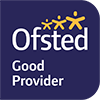E-Safety
ICT has become integral to the lives of children and students, both within the academy and outside of the academy. These technologies are powerful tools, which open up new opportunities for everyone. These technologies can stimulate discussion, promote creativity and stimulate awareness of context to promote effective learning. Students should have an entitlement to safe internet access at all times.
It is important to have regular conversations about staying safe online and to encourage children to speak to you if they come across something worrying online.
Talk to your child about the importance of creating a safe online environment, including keeping any log-in details and passwords safe.
These resources will support you to talk to your child about a range of online safety issues, set up home filtering in a child-friendly way and set up age-appropriate parental controls on digital devices:
- Thinkuknow by the National Crime Agency - Child Exploitation and Online Protection command (NCA-CEOP) - resources for parents and carers and children of all ages to help keep children safe online
- Childnet has developed guidance for parents and carers to begin a conversation about online safety, as well as guidance on keeping under-fives safe online
- Parent Info is a collaboration between Parent Zone and NCA-CEOP - support and guidance for parents and carers related to the digital world from leading experts and organisations
- National Society for the Prevention of Cruelty to Children (NSPCC) - guidance for parents and carers to help keep children safe online
- UK Safer Internet Centre - tips and advice for parents and carers to keep children safe online - you can also report any harmful content found online through the UK Safer Internet Centre
- Inclusive Digital Safety Hub and Online Safety Hub, created by South West Grid for Learning in partnership with Internet Matters - support and tailored advice for young people with additional learning needs and their parents or carers
- Parents’ Guide to Age Ratings explains how the British Board of Film Classification rates content, and gives parents advice on choosing online content well
Parents are advised to follow these useful tips for supporting your child to be safe whilst on the internet:
- Be involved in your child’s online life. For many of today’s young people there is no line between the online and offline worlds. Young people use the internet to socialise and grow and, just as you guide and support them offline, you should be there for them online too. Talk to them about what they’re doing, if they know you understand they are more likely to approach you if they need support.
- Watch Thinkuknow films to learn more. The Thinkuknow programme has films and advice for children from five all the way to 16. Your child may have seen these at school, but they can also be a valuable tool for you to find out more about what young people do online and some of the potential risks.
- Keep up to date with your child’s development online. Be inquisitive and interested in the new gadgets and sites that your child is using. It is important that as your child learns more, so do you.
- Set boundaries in the online world just as you would in the real world. Think about what they might see, what they share, who they talk to and how long they spend online. It is important to continue to discuss boundaries so that they evolve as your child’s use of technology does.
- Know what connects to the internet and how. Nowadays even the TV connects to the internet. Your child will use all sorts of devices and gadgets; make sure you’re aware of which ones can connect to the internet, such as their phone or games console. Also, find out how they are accessing the internet – is it your connection or a neighbour’s Wi-Fi? This will affect whether your safety settings are being applied.
- Consider the use of parental controls on devices that link to the internet, such as the TV, laptops, computers, games consoles and mobile phones. Parental controls are not just about locking and blocking, they are a tool to help you set appropriate boundaries as your child grows and develops. They are not the answer to your child’s online safety, but they are a good start and are not as difficult to install as you might think. Service providers are working hard to make them simple, effective and user-friendly. Click here to set up parental controls. For more information on parental controls, click here.
- Emphasise that not everyone is who they say they are. Make sure your child knows never to meet up with someone they only know online. People might not always be who they say they are. Make sure your child understands that they should never meet up with anyone they only know online without taking a trusted adult with them.
- Know what to do if something goes wrong. Just as in the offline world, you want to help your child when they need it. Therefore, it is important to know when and how to report any problem. Click here for more information on how to make a report.
For further help and advice on E-Safety please visit our E-Safety section here.


